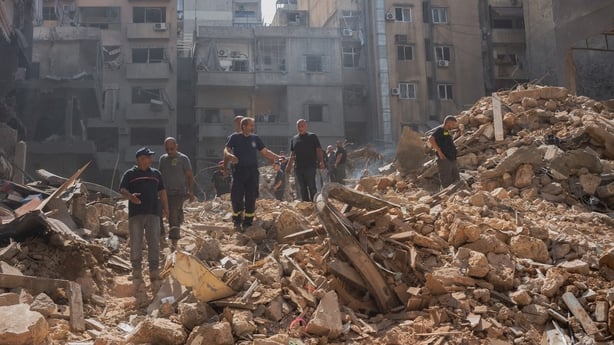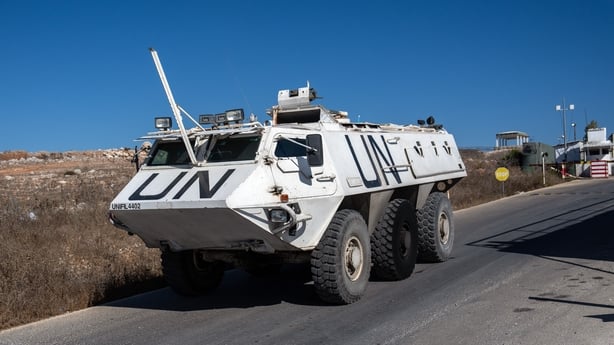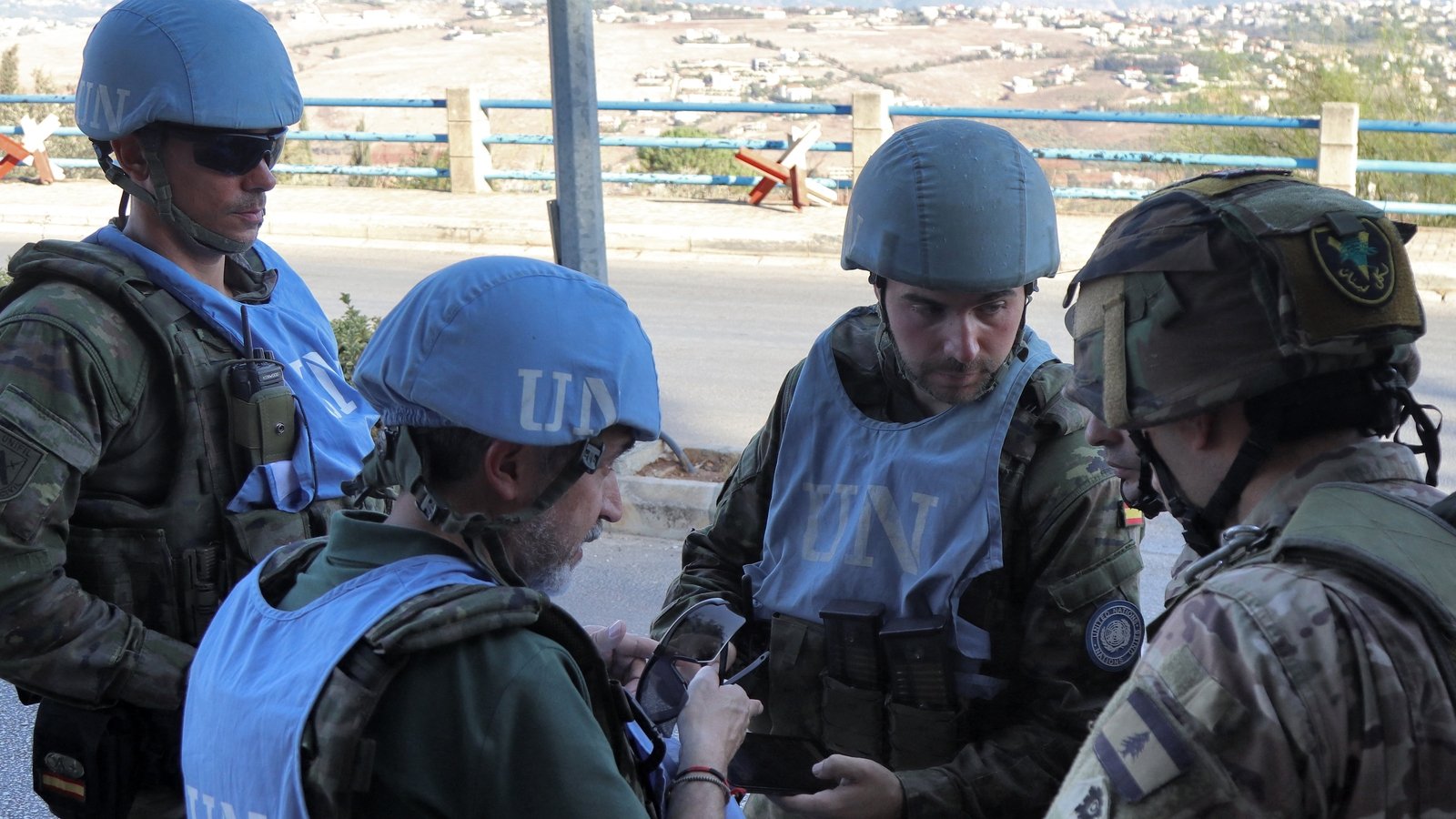Israeli strikes on UN peacekeeping posts in southern Lebanon this week raised serious concerns about the safety of international troops. The UN said troops would limit their operations, but would not leave.
The refusal by Irish soldiers to vacate UN post 6-52 after Israeli forces set up a firing position nearby was seen as a sign of “courage and determination”, by many Lebanese, according to David Wood, senior Lebanon analyst for International Crisis group.
Israeli tanks left the area around UN post 6-52 on Tuesday, but then the Israeli Defence Forces fired on other UN positions.
“The safety and security of our peacekeepers is now increasingly in jeopardy,” said Nick Birnback, UN Peacekeeping’s head of strategic communications.
“Recent direct attacks on our positions by the IDF have shown little regard for the protections afforded to UN premises and personnel under international law,” he told RTÉ News.
UNIFIL continues to play a “critical role” in promoting stability and providing a “reliable channel for communications and deconfliction”, between the Israeli and Lebanese armed forces, he said.
UN officials said UN troops also offered the only protection for humanitarian convoys attempting to reach the thousands of civilians in the conflict zone and that they would not leave.
On Thursday, the UN called the “repeated” and “deliberate” attacks on UNIFIL positions a “grave violation of international humanitarian law”.
It prompted a round of condemnation from UN peacekeeper-contributing countries and others.
France and Italy summoned the Israeli ambassadors to their countries.
The Italian defence minister Guido Crosetto said that the strikes – which injured Indonesian and Sri Lankan troops this week – “could constitute a war crime”.
And yesterday, the Spanish prime minister, Pedro Sanchez urged the international community to stop sending weapons to Israel.
Israel’s chief ally, the United States, took up the matter in a call between the US defence secretary Lloyd Austin and his Israeli counterpart, Yoav Gallant, on Thursday evening.
“I urged ensuring the safety of UNIFIL forces and coordinating efforts to pivot from military operations to a diplomatic pathway as soon as feasible,” Mr Austin wrote in a post on X.
As international pressure grew, the Israeli army announced it would be “conducting a thorough review at the highest level” and expressed “deep concern” over the incident.
But its military offensive continued in Southern Lebanon.

Israel’s stated aim is to push Hezbollah fighters back from the border and to return 60,000 displaced Israelis to their homes in the north of the country.
In the wake of the Hamas-led attacks on Israel on 7 October 2023 and Israel’s retaliatory bombardment of Gaza, Hezbollah intensified rocket attacks on Israeli territory, in solidarity, they said, with the Palestinians.
Israel retaliated with airstrikes on Lebanon, explosive pager attacks on Hezbollah operatives and in the past few weeks, a ground incursion, killing hundreds of Lebanese and displacing more than a million.
Israeli officials have repeatedly criticised UNIFIL for failing to prevent Hezbollah activity in the border region, saying Israel had been forced to take matters into its own hands.
“UNIFIL have been an abject failure,” said the Israeli government spokesman David Mencer, “as evidenced by the more than 10,000 rockets which this country has received from Hezbollah.”
But it is not UNIFIL’s job to coercively disarm militants, according to Ian Johnstone, professor of international law at Fletcher School of Law and Diplomacy, Tufts University.
“UNIFIL itself wasn’t meant to resolve the conflict between Israel and Hezbollah,” he said.
It was designed to provide some security “in the hope and expectation that the political situation would resolve itself,” he said.

Under Security Council Resolution 1701 agreed in 2006, following the Israel-Lebanon war, UNIFIL was mandated to monitor the ceasefire agreement and assist the Lebanese army to create a buffer zone.
The wording of the resolution calls for the “establishment between the Blue Line and the Litani river of an area free of any armed personnel, assets and weapons other than those of the Government of Lebanon and of UNIFIL deployed in this area.”
It does not authorise UNIFIL to use unilateral force, said David Wood of the International Crisis Group.
“Hezbollah has obviously, in the past 18 years, violated resolution 1701 by having armed fighters south of the Litani River, but Israel has also breached the resolution many times,” he said, “for example, flyovers in Lebanese airspace.”
While UNIFIL can conduct monitoring and reporting of violations of the agreement, the use of force would need a very different mandate from the Security Council – one which is highly unlikely to ever pass.
“It’s hard to imagine any troop-contributing countries being prepared to implement something like that,” said Ian Johnstone.
When the resolution was drafted in 2006, “they knew that it wasn’t going to be possible to forcibly disarm Hezbollah and nobody was going to be shooting down Israeli planes,” he said.
If the parties to the conflict do not implement the provisions of the resolution, there’s little UNIFIL can do, according to UN officials.
But while the peacekeeping presence does not solve a conflict, it can prevent it getting worse, according to Ian Johnstone.
“It’s the eyes and ears of the international community, a sort of a trip wire,” he said.
“A presence can help create an environment in which it’s possible to think about reducing the level of violence,” he said.

